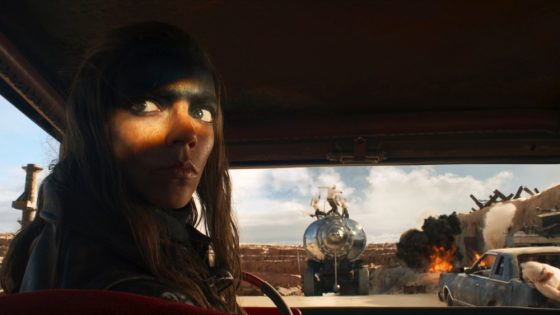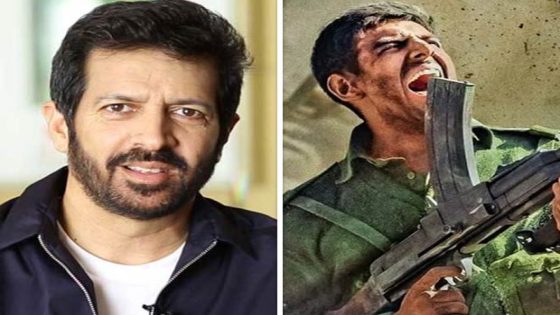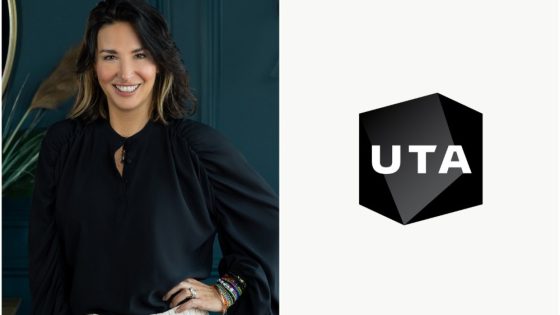Reviews will have to wait till the Cannes Film Festival kicks off on May 14, but it’s not too early for a critic to weigh in on this year’s lineup — or how it looks on paper, at least, and what the selection might say about the state of things.
At the top of the press conference, festival director Thierry Frémaux noted that last year would be a tough edition to top. The two big winners of the 2023 competition, “Anatomy of a Fall” and “Zone of Interest,” went on to score Oscar best picture nominations, alongside Martin Scorsese’s “Killers of the Flower Moon.” The festival made strides toward gender parity, with nearly a third of the films in competition directed by women. And to complicate matters, Hollywood has since been hit by two production-stopping guild strikes, delaying films the studios might have sent to Cannes.
Judging by the titles unveiled today, however, the festival has no shortage of American movies headed for the Croisette. Two massive titles had already been announced: “Horizon, an American Saga” (the first half of Kevin Costner’s two-part epic Western) and “Furiosa : A Mad Max Saga,” a prequel to George Miller’s post-apocalyptic franchise, whose 2015 “Mad Max: Fury Road” also kicked off in Cannes (so did his indie “Three Thousand Years of Longing,” but better to let that slide).
Now, Cannes officially confirms that Francis Ford Coppola’s dystopian urban-planning drama “Megalopolis” will screen in competition — just one of nine or 10 English-language movies in a section that typically skews more international (that’s nearly half the section, though not all are American). Four years Coppola’s junior, 81-year-old Canadian director David Cronenberg will bring “The Shrouds,” a high-concept look at grief for which the filmmaker, who was never shy about confronting death, was reportedly inspired by the loss of his wife. (Variety’s reporters had heard that octogenarian Mike Leigh had also been invited, though his “Hard Truths” didn’t make the cut in the initial announcement.)
Back in official selection for the first time since 1990 (not counting 2016 Director’s Fortnight disappointment “Dog Eat Dog”), Paul Schrader is set to screen “Oh, Canada,” a film that points back to several past collaborations (it stars Richard Gere and is based on the novel “Foregone” from Russell Banks, who died last year, and whose “Affliction” Schrader previously adapted). It’s less clear what language Palme winner Jacques Audiard’s “Emilia Perez” might be: The film, which stars Zoe Saldana and Selena Gomez, is described as a musical set amid a Mexican cartel. If those directors seem rather seasoned, that’s hardly unusual for Cannes, which tends to err on the side of inviting well-established auteurs over emerging talents.
That’s what’s so encouraging about the inclusion of names like Andrea Arnold (whose “Bird” sounds a lot like her earlier “Fish Tank”) and Sean Baker (about whose “Anora” hardly anything is known), who represent a younger generation of art-house voices. The remaining English-language titles (these from directors working outside their native language) include “The Apprentice,” a scripted look at wheeler-dealer Donald Trump’s early career from “Holy Spider” director Ali Abbasi, and Yorgos Lanthimos’ “Kinds of Kindness,” which the Greek director shot on the heels of “Poor Things” with some of the same cast (Emma Stone and Willem Dafoe star). Frémaux likened French director Coralie Fargeat’s ultra-bloody genre movie “The Substance” to recent Palme winner “Titane,” while Russian director Kirill Serebrennikov (“Tchaikovsky’s Wife”) will be back with “Limonov: The Ballad,” a portrait of a dissident Soviet poet starring English actor Ben Whishaw in the title role.
Obviously, most of these films were made outside of the system impacted by American labor strikes, and success in Cannes can help filmmakers find opportunities from the English-speaking world. That’s an important part of the Cannes dynamic, even if the more traditional model — French producers spotting international talent and financing their next project — tends to align more with those who are invited back. Scratch the surface of most of the films selected by Cannes and you’ll find a French connection (a trend Variety called out more than 20 years ago).
English may be the lingua franca for much of the international film community, but the Chinese market continues to grow, while Hollywood frets about its own future. That makes it especially surprising that Cannes has added so few new Asian auteurs to its ranks over the last decade — and only one in competition: Chinese master Jia Zhangke’s “Caught by the Tides,” starring his wife and muse, Zhao Tao. (Look for others in Un Certain Regard and other sidebars.)
That’s not meant to exclude Indian filmmaker Payal Kapadia or Abbasi or Serebrennikov, but the takeaway remains: The festival’s leadership role in identifying great work from China, Japan, Thailand, Korea and other countries has suffered enormously since the days when Pierre Rissient was scouting the region. One need only survey the important Asian voices showcased at other festivals to recognize all that slips through the cracks.
The other area in which Cannes clearly lags is in its support of female filmmakers. Down from last year’s record-high figure — and a far cry from the “50/50×2020” demanded by Agnès Varda, Ava DuVernay and 80 other women on the steps of the Palais in 2018 — the number of women in competition slipped from seven to four this year. In addition to Arnold and Fargeat, they are Indian director Payal Kapadia (“All We Imagine as Light”) and France’s Agathe Riedinger (“Wild Diamond”).
Granted, Frémaux could still make a few late additions, but he’s been stubbornly resistant to the idea of “lowering the bar” for the sake of inclusion — a backwards way to think about reevaluating the male-centric standards by which cinematic work is so often judged. Inviting “Barbie” director Greta Gerwig to chair the jury (an inspired choice!) doesn’t solve the imbalance in the program, though juries at the world’s leading festivals seem to be actively embracing diversity where they find it, awarding their top prizes to female filmmakers more often than not in recent years.
Cannes represents the top of the mountain among such institutions, and part of the selection committee’s job is to scour the globe in search of original and exciting voices. Given their position, they have first choice — filmmakers regularly turn down invitations from other festivals in hopes of a slot at Cannes — but programmers’ have to recognize it when they see it. Granted, these conclusions are based on statistics alone (we won’t see the movies until mid-May), but if every other major festival can find a balance, one wonders why the Cannes selection looks so lopsided on paper.
Source Agencies



